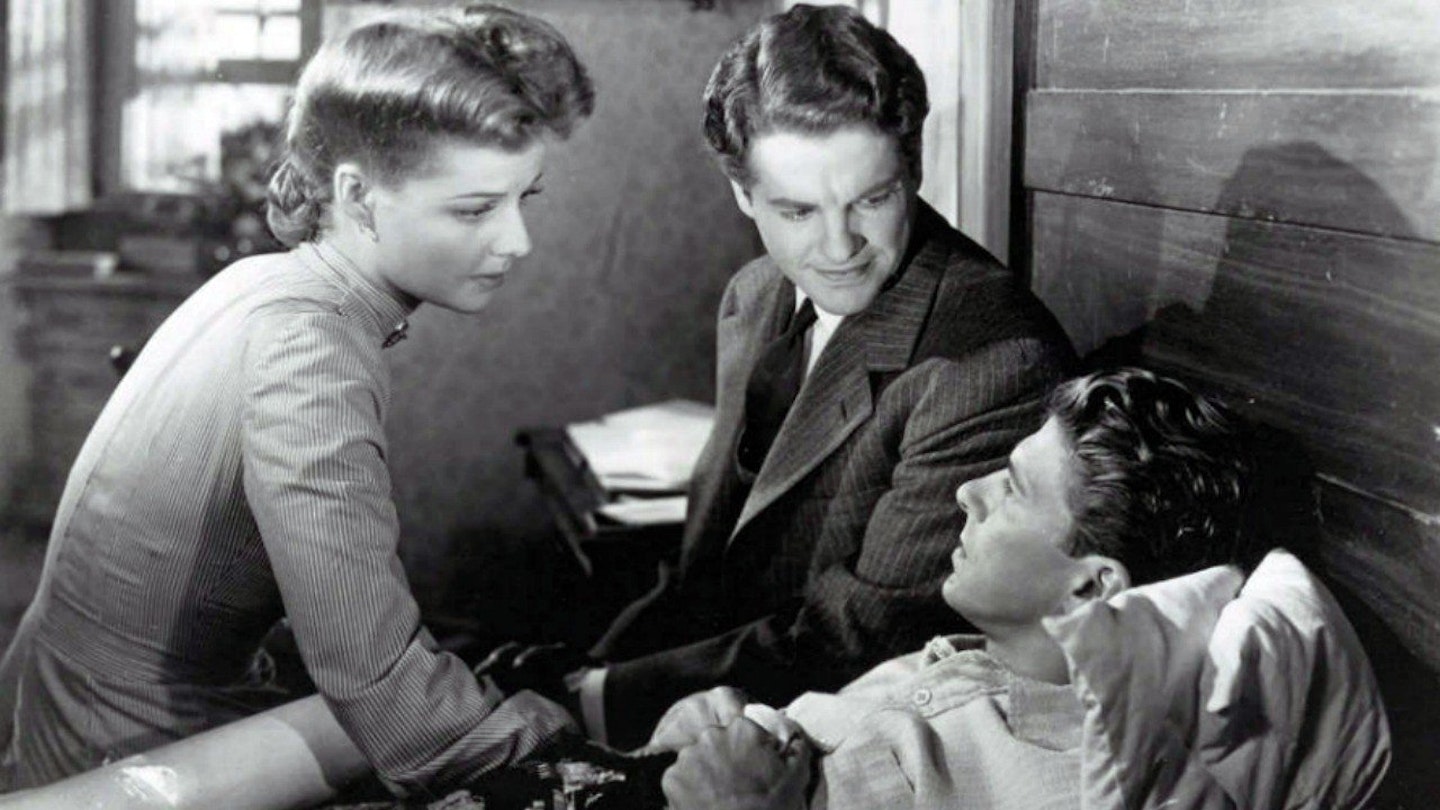A fascinating acting contrast between a trio of Hitchcock alumni lies at the heart of this no-holds melodrama. Hitch cast Robert Cummings twice - in Saboteur and Dial M for Murder — despite thinking him one the blandest A-listers in Hollywood. He's certainly out of his depth here, as Parris Mitchell, the turn-of-the-century small-townie whose study of psychiatry under Claude Rains's Dr. Alexander Tower prompts him to drift off into misty-eyed eulogies to Freud that reflected cinema's then-obsession with the sins of the subconscious. Rains (who would excel in Notorious) cuts much more of an intellectual dash than his milquetoasted protégeé and his clinical interest in the specimens resident in Kings Row is amusing for all the right reasons.
However, they're both upstaged by the imperious Judith Anderson, who draws on all the malevolent menace she summoned in Rebecca for her performance as Harriet Gordon. Indeed, with her starched crinolins and even more inflexible Victorian values, she could be Mrs Danvers' kin. Her disdainful attitude towards Ronald Reagan's gadabout is particularly severe and her response to his motoring accident is almost as relishable as the famous sequence in which Drake McHugh wakes to discover his legs have been amputated and delivers the immortal line, `Where's the rest of me?' (which Reagan later used as the title of his autobiography).
Although it seems tame (and occasionally risible) today, this adaptation of Henry Bellamann's novel was considered a hot property back in 1942 and moral guardian Joseph Breen wrote to Warners to declare that `To attempt to translate such a story to the screen, even though it be re-written to conform to the provisions of the Production Code is, in our judgment, a very questionable undertaking from the standpoint of the good and welfare of this industry.' However, screenwriter Casey Robinson was instructed by producer David Lewis to tone down the references to incest, homosexuality and euthanasia and concentrate instead on the more wholesome gossip, insanity, fornication, class hatred, suicide and murder.
What resulted was the prototype soap opera. So now you know who to blame.
